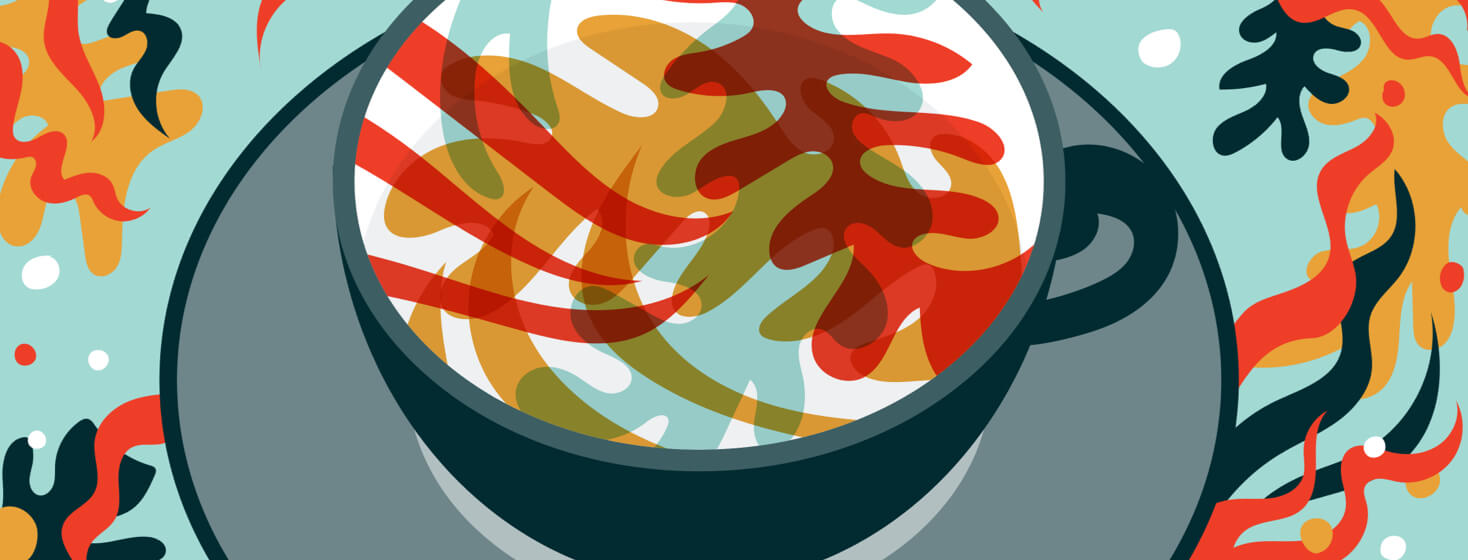Four Teas for Endo Belly Problems
Tea is pretty much a staple item in the UK. How you make tea or whether you add sugar or not, can be a controversial topic – and herbal vs. regular builder’s tea is known to cause division.
But wherever you fall in the tea camp, herbal teas come with many benefits, particularly for those of us who suffer from endo belly or IBS problems with endometriosis.
Herbal teas and endometriosis
For stomach upset/diarrhea:
Many of us with endo suffer from bouts of diarrhea and an upset stomach, and these flare-ups can often leave the intestines feeling sore and inflamed.1
Chamomile is a soothing herb, containing mucilage polysaccharides, which create a slimy, gel-like substance that can calm irritated cells, such as inflamed intestines.2,3
Traditionally, chamomile tea has been used to calm diarrhea and IBS problems, though, in research, the effects tend to be from higher, concentrated doses, than those found in tea.4
However, regardless of the research, many people find tea soothing and comforting when experiencing gut distress, so it could be worth sipping on if you experience these symptoms.
For nausea and vomiting:
Many of my clients experience nausea and vomiting during their period or around ovulation when they first come to me, and while it’s important to work on the root cause, a wonderful remedy is ginger tea.
Ginger has been shown to be to aid with both nausea and vomiting, and even pain, and inflammation, which makes this tea a great option if you suffer from nausea and vomiting alongside pain, such as during menstruation.5,6,7
Often, my clients’ nausea and vomiting dramatically reduce or disappear completely when they begin using ginger tea or ginger supplements!
Ground ginger powder has been used in most of the studies, which is more potent than fresh, so try adding ginger powder to hot water or using herbal tea blends, just be aware to not exceed the recommended dose.8
Ginger is also a natural blood thinner, so please check with your practitioner if on any blood-thinning medication.
For bloating and pain:
Peppermint is known for its powerful effect on almost all IBS symptoms, but it’s particularly effective for pain, spasms, and bloating, as it relaxes the muscles of the intestines, allowing cramps to ease and gas to travel through the intestines more easily.9
Peppermint works locally, essentially, where it’s applied, so if drunk as a tea, it’ll work higher up in the stomach area and near the top of the abdomen. If your pain is further down, you’ll likely be better off with peppermint capsules, which you can learn more about here.
Next time you have a case of the endo belly, and your stomach distends, I really recommend giving peppermint tea a try.
For a microbiome boost:
Lastly, we all want to know we’re doing what we can to support a happy gut, especially given that so many people with endo have SIBO and IBS issues. Rooibos tea is rich in anti-inflammatory antioxidants known as polyphenols.10
Polyphenols have numerous benefits for overall health, but they’re known to support a healthy gut microbiome too. If rooibos isn’t your thing, lots of teas contain polyphenols, including chamomile and peppermint.11
Now, of course, rooibos tea won’t support gut health alone, but it’s a comforting way to give your gut bugs a little boost.
Have you tried any teas to help with you with any gut issues?

Join the conversation